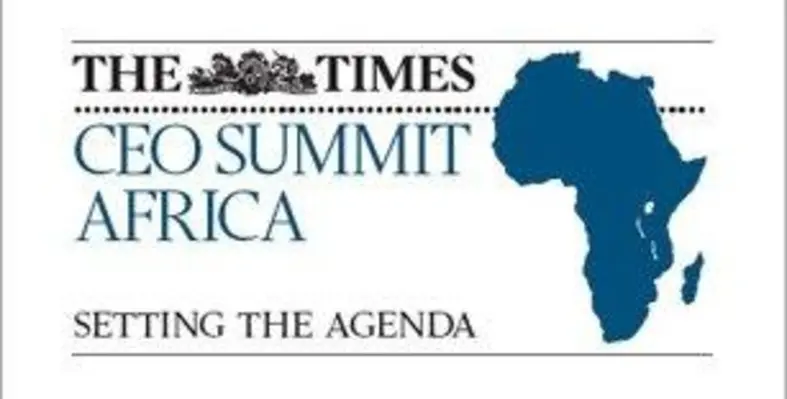At The Times’ Africa CEO Summit, Brian Menell, Chairman of Kemet Global Ltd., presented his views on the challenges posed by the increase in “resource nationalism” which is building momentum across the African continent.
Two dominant trends are transforming the African mining investment landscape. The first is the trend away from the history of African mining investment being polarised between big global companies building mega projects on the one hand, and short term opportunistic cowboys on the other hand. The former group has high project hurdles in terms of scale and is generally risk averse, while the latter group are focused more on selling stories and flipping assets than on building mines. Historically, this polarisation has resulted in the underdevelopment of a lot of promising mid-tier projects, particularly in the less established mining jurisdictions. The growth of well financed and technically competent mid-tier mining companies to fill this gap in Africa has come a long way over the last ten years. In the Oil and Gas arena, this trend is less well established but is building momentum nevertheless. Governments across the continent will increasingly discourage short term opportunistic investment through the increasing rigorous implementation of “use it or lose it” style regulations to enforce investment commitments and work programme obligations.
This trend and its momentum in Government, is entirely positive for both the countries concerned, and for the stability of the equity and debt markets for African resources companies. This is, however, only the case when Government enforcement of mining regulations is conducted in the context of a level “political playing field”. If these processes are politicised or significantly distorted by “bureaucratic entrepreneurialism” they can be a very serious deterrent to a long term investment vision.
The second key trend in the African resource investment landscape identified by Brian Menell is the growing “resource nationalism”, that can be seen across much of the continent. As the number of African governments which are either democratically elected, or are increasingly sensitive to populist perceptions, grow, the focus on countering the perceptions of foreign exploitation of natural resources likewise grows. This increasing sensitivity to populist “anti-imperialist” perceptions has come at the same time as increased self-confidence and growing capacity on the part of many African governments. Hence the increasingly assertive examination of new models of participation in natural resource projects and companies on the part of State and domestic business interests.
The manifestation of this trend range from the “Black Economic Empowerment” legislation in South Africa, to the much more radical measures being put in place in Robert Mugabe’s Zimbabwe, to the calls by Alpha Conde, the newly elected President of Guinea, which is rich in Bauxite and Iron Ore, for 33 per cent back in rights for the State into all mineral projects in order to establish a large and fundable “National Mining Company”.
The “National Mining Company” model, to house minority interests in all mineral projects on behalf of the State, as an industry specific Sovereign Wealth structure, will become increasingly fashionable. He envisages a significant number of these State entities for mining assets, mirroring the much more established State Oil Companies, being created across the continent over the coming few years.
The natural instinct of the mining industry is to fight these developments in every way possible. They are generally seen as an enforced transfer of value which undermines project economics and must be avoided or minimised. A more pragmatic and progressive approach to this unavoidable trend is required.
If populist resource nationalism is resisted to rigidly by mining and oil industry investors, the measures that would, regardless of this opposition, be imposed, would be (and in a number of cases already have been) much more destructive and costly than they could be if the process was engaged with in a more positive and constructive manner.
Brian Menell proposed that these Mining Sovereign Wealth Structures could be a very valuable contribution to the stability and sustainability of African mining investment jurisdictions, if they are established with sound principles and objectives. Firstly, they must be transparent so that the leadership, population and media can all see the value creation accruing to the nation. Secondly, back in rights must be acquired from the investors at a value of not less than historic cost. Thirdly, in return for back in rights the State must offer greater certainty with respect to tenure of title, preferential taxation regime etc. to demonstrate the principle of value for value and lastly, back in rights should be limited to 25 per cent.
Brian Menell concluded his presentation by repeating his call to developers of African mining and oil projects to see “resource nationalism” as both a challenge, and an opportunity. A challenge to avoid forced transfer of value or ownership without fair compensation, and an opportunity to forge a more sustainable and closer bonds with the countries in which they operate.
“If, as natural resources investors in Africa, we can overcome our natural aversion to any additional state intervention or participation, and constructively engage in the search for new models and structures to satisfy populist aspirations, we will find opportunity in adversity. We can do a lot to help guide the processes in directions that create more long term certainty and ultimately benefit all of our stakeholders.”












